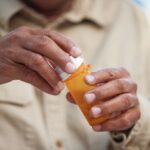 Do you know the Signs & Symptoms: Drug and Alcohol Abuse?
Do you know the Signs & Symptoms: Drug and Alcohol Abuse?
The American Society of Addiction Medicine defines addiction to alcohol and other drugs as “A chronic, progressive, relapsing disorder characterized by compulsive use of one or more substances that results in physical, psychological, or social harm to the individual and continued use despite this harm”. In 1956 the American Medical Association deemed addiction as a primary, progressive, chronic, and fatal disease with identifiable symptoms. In the face of this evidence many people tend to believe the myths and misconceptions about addiction to alcohol and other drugs.
What’s our nation’s number one health problem? Substance Abuse
Substance abuse is our nation’s number one health problem according to the National Institute on Drug Abuse. Alcohol continues to be at the top of the list of abused substances, followed by opiates, cocaine, marijuana, methamphetamine, and benzodiazepines just to mention a few. The societal costs of untreated addiction is passing the $300 Billion range and climbing. Some of the societal costs are illness, death, crime, medical, employment, unemployment, and other special conditions such as Hepatitis and HIV.
Signs and Symptoms of Drug and Alcohol Abuse
One of the most common signs of substance abuse/dependence is continued use of alcohol and/or drugs despite the negative consequences of the use. Often a person will blame their use on other people or circumstances. They have the tendency to blame, instead of realizing their difficulties are a direct result from their continued use of the alcohol and/or drugs. People with the disease of addiction really may believe that they drink normally or that “everyone” takes drugs. These false beliefs are called denial, and denial is a part of addiction.
Other important Signs & Symptoms of Drug and Alcohol Abuse include but are not limited to:
Tolerance– A person will need increasingly larger amounts to attain the same desired effect or to get high.
Craving– A person will feel a strong need, desire, or urge to use alcohol and/or drugs, will use alcohol and/or drugs despite negative consequences, and will feel anxious and irritable if he/she can’t use them. Craving is a primary symptom of addiction.
Loss of control– A person may use alcohol and/or other drugs more often or in greater quantities than he/she meant to use. A person may also try to reduce or stop drinking or using other drugs many times, they may be able to discontinue the use but staying stopped generally is failed. They may also feel the need to prove to themselves and others that they don’t have a problem. Persons not having a problem have nothing to prove to themselves or others.
Physical dependence or withdrawal symptoms– In some cases when alcohol or other drugs use is stopped, a person may experience withdrawal symptoms from a physical need for the substance. Withdrawal symptoms differ depending on the drug, but may include nausea, sweating, shakiness, and anxiety. The person may try to relieve these symptoms by taking either more of the drug or by substituting for another drug if their drug of choice is unavailable.
Psychological symptoms – Psychological symptoms of drug and alcohol abuse can vary depending on the specific substance, the frequency and duration of use, and individual factors. It’s important to note that not everyone who uses drugs or alcohol will experience these symptoms, and the severity can also differ significantly. Some Common psychological symptoms associated with substance abuse include: Frequent and abrupt changes in mood, ranging from extreme euphoria and elation to deep depression and irritability; Increased anxiety, nervousness, and a heightened sense of paranoia, often accompanied by racing thoughts and an inability to relax; Prolonged feelings of sadness, hopelessness, and despair. Substance abuse can exacerbate or even lead to clinical depression; Impaired cognitive function, including difficulties with memory, concentration, and problem-solving.
Quitting Drugs and Alcohol is Just the Beginning
Actually, discontinuing the use of alcohol or other drugs is just the beginning of the recovery process.
Withdrawal and Detox: The initial phase of quitting substances often involves withdrawal symptoms, which can be physically and mentally demanding. At English Mountain Recovery Center, we offer a full continuum of care for people entering recovery, including our drug and alcohol detox program. Under the guidance of our medical team, we help our clients move through the physical and psychological symptoms of detoxing from drugs or alcohol in a safe and comfortable environment with minimal discomfort.
Cravings and Temptations: Individuals struggling with substance use disorders need to learn new ways to cope with everyday life. Overcoming the urge to use drugs or alcohol doesn’t end once you’ve quit. Cravings and temptations can persist for a long time. At English Mountain Recovery Center, we help develop coping strategies and healthy habit crucial to managing urges.
Mental and Emotional Healing: Substance Use Disorders are often masking the individuals’ underlying emotional and psychological issues. When you quit, you may be confronted with these issues, and it’s important to address them with therapy, counseling, or support groups.
Developing a New Lifestyle: People in recovery need to learn or relearn how to deal with stress, anger, or social situations and how to have fun without the use of alcohol or other drugs. Learning these new skills takes a lot of work and practice. It’s essential to replace the old habits and routines associated with drug and alcohol use with healthier alternatives. This can include finding new hobbies, exercise, and social activities.
Rebuilding Relationships: Substance abuse can strain or damage relationships with friends and family. After quitting, rebuilding trust and reconnecting with loved ones can be a long and delicate process. Today hundreds of thousands of people are in recovery from this devastating disease. They come from all walks of life. Fortunately, they are living good lives and becoming true assets to their families and our communities.
Support Systems: Building and maintaining a strong support system is crucial. This can include therapists, support groups, sponsors, or mentors who can help you stay on the path of recovery. At English Mountain Recovery, our program is designed to enable your loved one to partake in your recovery while you yourself explore your own journey — and all the while healing the connection between relationships.
Long-Term Commitment: Recovery is a lifelong commitment. Staying clean and sober requires ongoing effort, self-awareness, and a commitment to personal well-being.
Staying Connected: CaredFor is our secure, online platform that allows our alumni to connect, engage, and support one another, while also staying in touch with English Mountain Recovery Center. Inside CaredFor, alumni use a personalized dashboard that tracks sobriety time, provides articles and resource material, and provides support from recovery experts, including those at English Mountain Recovery Center.

 Do you know the Signs & Symptoms: Drug and Alcohol Abuse?
Do you know the Signs & Symptoms: Drug and Alcohol Abuse?


